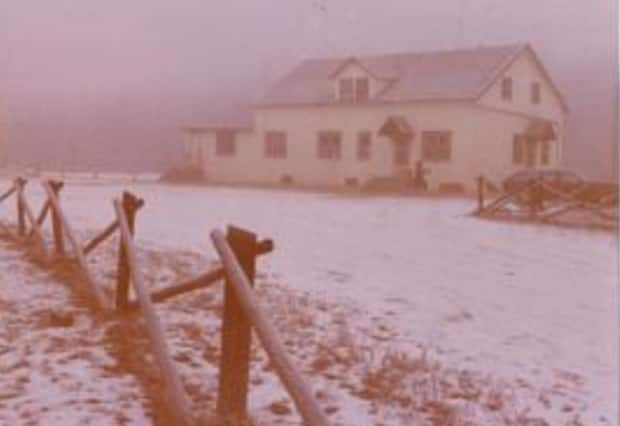1974 death at centre of RCMP investigation into Sask. boarding home where survivors alleged abuses

WARNING: This story contains distressing details
The RCMP says its investigation into a former school and boarding home in north-central Saskatchewan involves a death that potentially happened at the government-funded facility in 1974.
The complaint about Timber Bay Children's Home — the details of which remain largely unclear — was made to the RCMP in October 2020, according to a news release issued on Wednesday.
COVID-19 restrictions meant officers did not take the first recorded statement in the case until earlier this month, according to the release.
No charges have been laid.
The RCMP first confirmed the investigation's existence to CBC News on Tuesday.
"This is the only case involving a residential school currently being investigated by the Saskatchewan RCMP Historical Case Unit," the force said in its release. "We commit to investigating all the complaints we receive."
Staff accused of physical and sexual abuse
Timber Bay Children's Home opened in the early 1950s on the shore of Montreal Lake, Sask., near several reserves, about 245 kilometres northeast of Saskatoon.
The facility housed Métis, First Nations and non-Indigenous children and provided some education until 1969, when a provincial school opened in the hamlet of Timber Bay and students were instead sent to that school, according to court records. Residents were also sent to the school at the nearby Montreal Lake First Nation reserve, approximately one kilometre away.
In 1969, the Northern Canada Evangelical Mission transferred its ownership of the home to the Brethren in Christ Church, an independent denomination affiliated with the Mennonite Central Committee Canada, according to court records.
Both the federal and provincial governments helped fund the home, according to the 2017 court decision that determined the facility was not a residential school under the Indian Residential School Settlement Agreement.
The Saskatchewan NDP recently asked the provincial government to apologize for its role in Timber Bay Children's Home.
In 2001, several former residents of the home filed a civil suit against the church groups, and later against both governments. They alleged a wide range of physical and sexual abuse by several of the home's staff.
"Each plaintiff was required to attend at and was confined to the [centre] for all or part of one or more school years," according to the statement of claim.
The lawsuit became entangled in a legal squabble over whether it could be certified as a class action lawsuit. But the lawyer who filed the suit on behalf of the former residents, Tony Merchant, says the lawsuit remains active.
The RCMP investigation may assist the lawsuit, he said.
No statement of defence has been filed, according to the Saskatoon Court of Queen's Bench.
'Investigators will listen'
The RCMP said the investigation is in its early stages and will involve meeting with people from several communities.
The lawsuit filed by Merchant named over two dozen survivors from various communities, including La Ronge, Saskatoon and Air Ronge.
"Investigators will listen to those who choose to come forward and will follow up on any information received," according to the RCMP's Wednesday news release. "We encourage anyone with information to share to please call 310-RCMP."
The death being investigated occurred in 1974 — 20 years before the children's home closed in 1994.
No other details about the case were being released as "protecting the privacy and acknowledging the trauma of those involved is a priority," the RCMP said.
Support is available for anyone affected by their experience at residential schools, and those who are triggered by the latest reports.
A national Indian Residential School Crisis Line has been set up to provide support for former students and those affected. People can access emotional and crisis referral services by calling the 24-hour national crisis line: 1-866-925-4419.
Do you have information about unmarked graves, children who never came home or residential school staff and operations? Email your tips to CBC's new Indigenous-led team investigating residential schools: WhereAreThey@cbc.ca.

